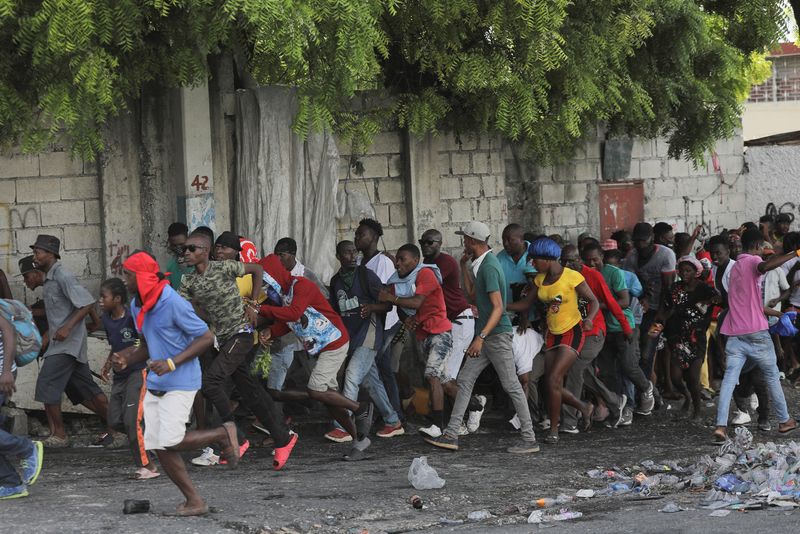(Reuters) - The United States and Canada should take the lead in forming a strike force to confront Haitian gangs that have created a humanitarian crisis by blocking access to a key fuel terminal, Haiti's ambassador to the United States said on Monday.
U.N. Secretary-General Antonio Guterres has proposed "a rapid action force" to help Haiti's police confront the gangs, without saying that the United Nations itself should lead such a force. No countries have yet stepped forward to offer personnel.
"We wish to see our neighbors like the United States, like Canada, take the lead and move fast," said Bocchit Edmond in a telephone interview, in reference to providing security assistance.
"There is a really big threat over the head of the prime minister. If nothing is done quickly, there is a risk of another head of state (being) killed in Haiti," he said, referring to the 2021 assassination of President Jovenel Moise.
Prime Minister Ariel Henry last week asked the international community to provide a "specialized armed force" to control gangs that have been blocking the Varreux fuel terminal since last month.
Sporadic looting and gun battles between gangs and police have become increasingly common in Haiti in recent weeks as the shortages have led to mounting frustration and desperation.
Frequent protests have also been staged in different parts of Haiti to demand Henry's resignation, and a group of activists on Sunday rallied outside the White House to call on the Biden administration to halt support for Henry.
The United States on Saturday said it was reviewing Haiti's request for support.

Canada's foreign ministry on Friday said 19 member countries of the Organization of American States were committed to helping Haitians "overcome the complex security challenges facing the country."
Acute shortages of gasoline and diesel have crippled transportation and forced businesses and hospitals to halt operations, just at the country faces a renewed outbreak of cholera.
